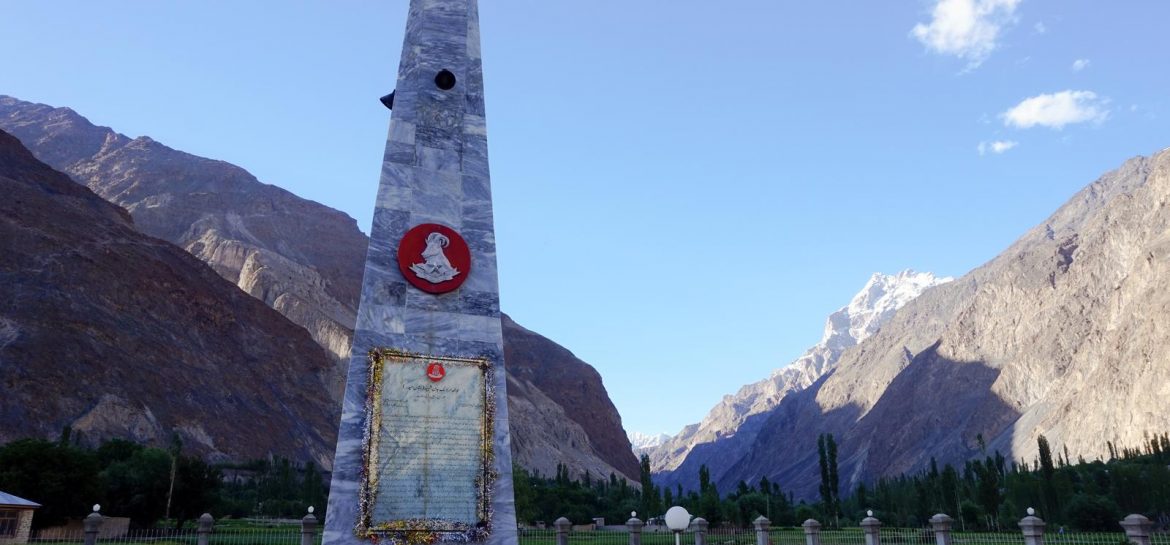As disputed Pakistan region votes, locals want share of Chinese investment boom

GAHKUCH, Pakistan (Reuters) – As night falls on a remote mountain road in northern Pakistan, Ijaz ul Haq, 22, is keeping his grocery store open longer than usual, hoping to cash in on a frenzied electoral campaign that has brought the nation’s interest upon this otherwise neglected region.
Political parties are trying to sway voters in Gilgit-Baltistan, an impoverished, remote and rugged mountainous part of the larger Kashmir region that is also claimed by India. The country’s top politicians have turned up here to stump, vowing to build multi-billion dollar infrastructure projects, and end decades of disenfranchisement.
Gilgit-Baltistan, which borders Afghanistan and China, is the gateway of the $65 billion China-Pakistan Economic Corridor (CPEC) infrastructure plan. But the region has so far reaped few rewards.
“Look at this road we have, it takes 4.5 hours to get to a decent hospital from here. If they fixed the road it would take 1.5 hours,” said Haq, who lives in Thawoos, a tiny hamlet in the district of Ghizer.
Locals fought pro-India forces and opted to join Pakistan in 1948. But since then Gilgit-Baltistan has not been granted full inclusion by the Pakistani constitution, over fears doing so would jeopardize Islamabad’s international stance that all of Kashmir is disputed territory.
The local assembly, for which the Nov. 15 elections are being held, has few powers. Pakistan’s National Assembly and Senate have no representation from Gilgit-Baltistan, and the region receives only a fraction of the national budget.
This month Prime Minister Imran Khan said he would provide provisional provincial status to Gilgit-Baltistan, giving it greater political representation, but no timeline has been given.
The announcement came a year after India changed the status of the portion of Kashmir it controls, taking away some of the region’s privileges. India rejects Khan’s plan to change Gilgit-Baltistan’s status, and it calls the election there an exercise to cover up Pakistan’s occupation of the region.
Khan’s plan is not the first time locals have heard promises of being granted constitutional rights: in 2016 then Prime Minister Nawaz Sharif proposed to make Gilgit-Baltistan a province as well, but shelved plans after pro-Pakistan leaders in Indian-administered Kashmir denounced the decision.
“We’ve long said we want to be part of Pakistan, but they push us away,” said Yawar Abbas, a local leader with the Gilgit-Baltistan Awareness Forum, which seeks to alter the region’s constitutional status.
Abbas says the disputed status has left locals in limbo, unable to enjoy the same rights as other Pakistanis, but also unable to enjoy autonomy.
BROKEN DREAMS
Graves of fallen soldiers marked by Pakistani flags dot the Ghizer district, which has the country’s highest per-capita rate of military recruitment.
“There is rampant poverty here, and for many of us there is no other way to earn a living than joining the military,” said Haq, whose brother serves in the navy.
In the winter, when the glacial melt that powers the small hydroelectric dams dotting the region slows, locals often have no power for 20 hours a day.
The CPEC project was supposed to bring development to the region, but that has not happened, a consequence, residents believe, of the lack of local representation at national levels.
New roads, two hydroelectric power plants, a fiber-optic internet line, and a special economic zone to boost industrial activities have all been proposed as part of the CPEC project, but none have been materialized so far.
The only substantial project from the much-touted China-Pakistan partnership has been the construction of the Karakoram Highway, completed decades ago.
Like most other candidates, Jamil Ahmed, has promised voters he would seek to draw more investment from China.
“CPEC is going through here, we are the gateway, we are the door to China. So if someone opens the door for you, you should put something at the doorstep as well,” said Ahmed, a candidate with the Pakistan Peoples Party.